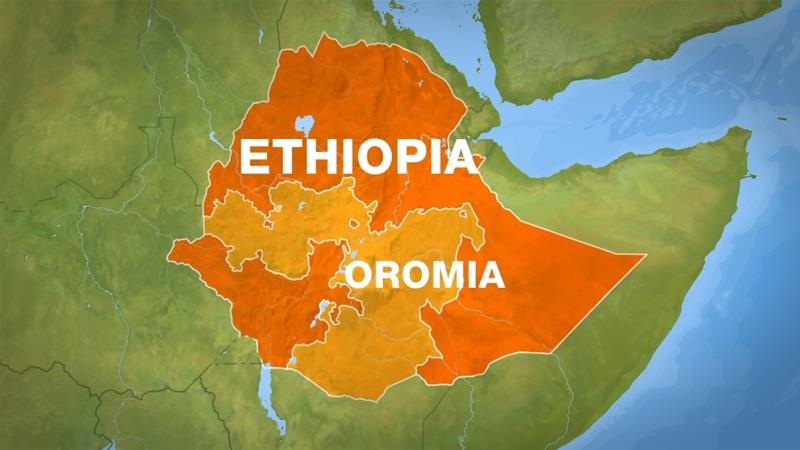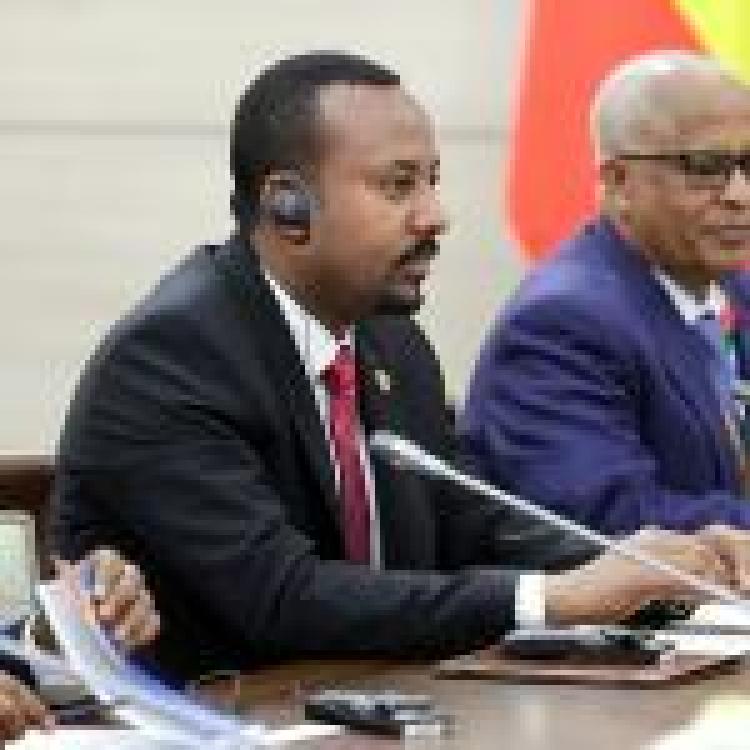
More than 250 people mostly from the Amhara ethnic group, have been killed in an attack in the Oromia region of Ethiopia on Saturday.
The attack reportedly began around 09:00 on Saturday and continued until about 13.00. Calls were made by residents to district authorities but help only came hours later.
"[Regional] special forces and the army arrived late in the afternoon around five. No-one came to help us until then," one resident said speaking to the BBC.
An advocacy group, the Amhara Association of America, puts the death toll at 378 and says it has identified 176 victims by name. Another witness told the BBC that in addition to those killed on the spot, some were abducted by the attackers.
"After they took them, they killed them in the woods. Fifty bodies were found in place in the forest," he said.
"They went into the houses of Amharic speakers and began killing," he continued.
In the village of Gutu eight people were killed after their houses were set ablaze and another 35 people were also buried in the village, and in the village of Silsaw 102 people were buried, he added.
Witnesses and the Oromia regional government have blamed the Oromo Liberation Army (OLA) for the attack, however, a spokesperson for the OLA denied the allegations and claimed that the Ethiopian government was once again blaming the OLA for crimes it had committed.
There r now a bewildering number of documented atrocities that hv been committed in Oromia state and beyond. The regime’s EHRC has proven itself to be too partisan to hold anyone accountable. This is why we must reiterate the urgent need for independent investigations. #Ethiopia
— Odaa Tarbii (@OdaaTarbiiWBO) June 19, 2022
Speaking to the Associated Press Odaa Tarbii said “The attack you are referring to was committed by the regime’s military and local militia as they retreated from their camp in Gimbi following our recent offensive,”.
Tarbii went on to tweet that the Government-backed Ethiopian Human Rights Commission (EHRC) was incapable of holding anyone accountable, as the body had proven itself "to be too partisan" and then called for "independent investigations".
If there is one thing that should unite all who wish to see justice for the countless victims of atrocities in Ethiopia, it should be the call for the immediate launch of independent investigations.
— Odaa Tarbii (@OdaaTarbiiWBO) June 19, 2022
The bloodshed of innocent civilians will only stop once there is accountability.
Speaking to the Associated Press, Abdul-Seid Tahir who escaped the attack on Saturday said “I have counted 230 bodies. I am afraid this is the deadliest attack against civilians we have seen in our lifetime,”.
“We are burying them in mass graves, and we are still collecting bodies. Federal army units have now arrived, but we fear that the attacks could continue if they leave,” he added.
Another witness, who gave only his first name, Shambel, over fears for his safety, said the local Amhara community is now desperately seeking to be relocated somewhere else “before another round of mass killings happen”.
He said ethnic Amhara that settled in the area about 30 years ago in resettlement programmes are now being “killed like chickens”.
Ethiopia is experiencing widespread ethnic tensions in several regions. Thousands of people have been killed, and several million others have been displaced from their homes as a result of the fighting between forces loyal to Abiy and the Tigray People’s Liberation Front (TPLF) and their allies.
Earlier this year, the head of the World Health Organisation (WHO) highlighted the ongoing crisis occurring in Tigray, stating that there is nowhere on earth where "people are more at risk".
Read more at Al Jazeera and BBC News




